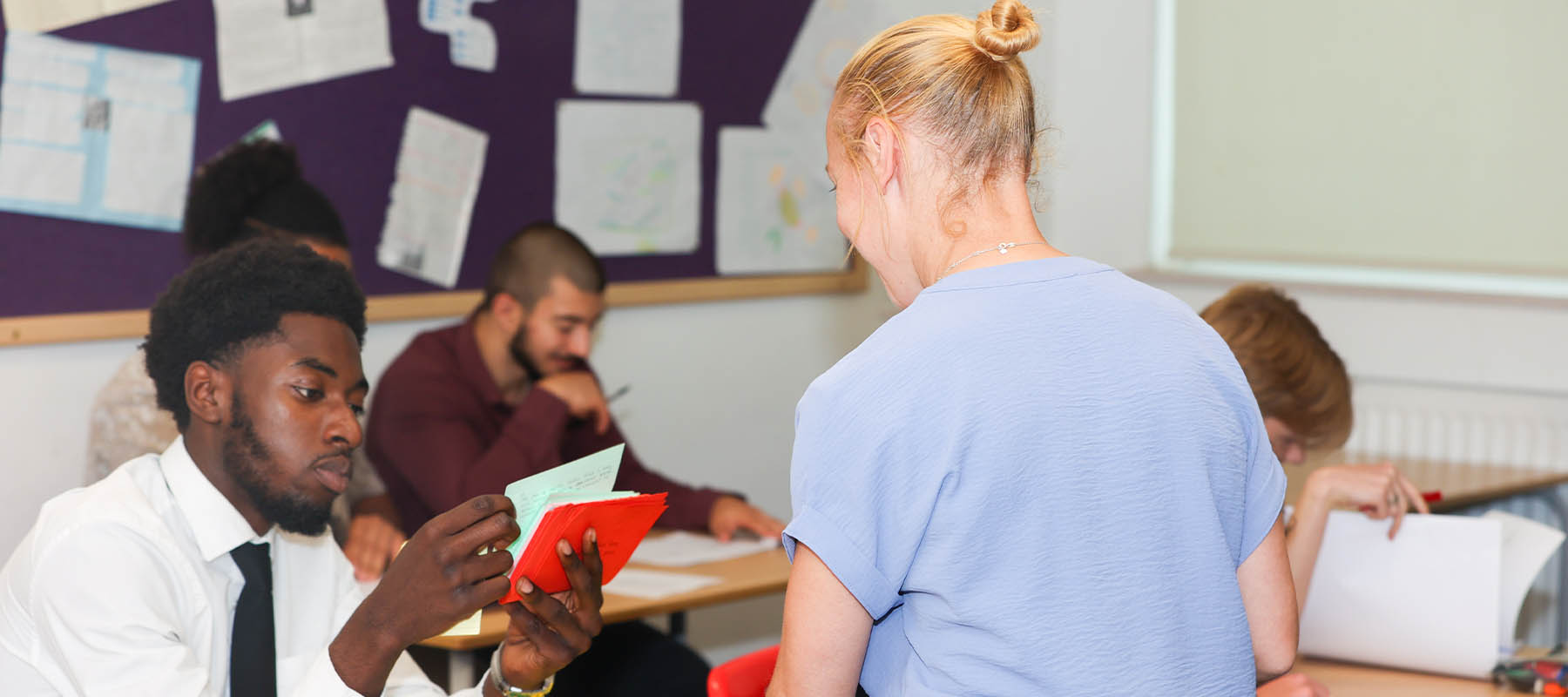Religious Studies
It is our intent for the Religious Studies element of our school curriculum to engage, inspire, challenge and encourage pupils, equipping them with the knowledge and skills to ask and answer challenging questions.
We would like them to be able to hold meaningful conversations and articulately express themselves on a range of topics. Religious Studies contributes significantly to the Christian character of the school and enables pupils to ask deep and often searching questions about their own faiths and beliefs, and the beliefs, faiths and opinions of others regarding pertinent contemporary moral issues. Pupils will be able to deepen their understanding of God as encountered and taught by Christians. The teaching of RS makes links between the beliefs, practices and value systems of a range of faiths and worldviews studied. The RS curriculum will help to develop responsibility and respect for all aspects of diversity, whether it be social, cultural and religious, and prepare pupils well for life in modern Britain.
The overarching concepts for ‘Religious Studies’ at Townsend School are tied in with the school vision: Respect For All, Achievement For All which is based on the biblical principle of loving your neighbour.
Course Details
The aim of Religious Studies at Townsend is to provide a balanced curriculum which enables students to be able to be religiously and theologically literate and can articulate their views on a range of religious and non-religious worldviews. In line with the Townsend’s Respect For All Vision, our aim in RS is to empower students to use their voice to respect the beliefs of others, show compassion and empathy to all faiths as well as those without.
Course Description
In line with the Church of England Schools Statement of Entitlement and Hertfordshire Agreed Syllabus at least 50% of the course for KS3 allows students to acquire a rich, deep knowledge of Christian beliefs and practices which includes the ways in which it is unique and diverse. The other topics include the other Abrahamic faiths, Eastern religions and non-religious worldviews.
Programme of Study
Students focus on how God’s nature is revealed and reflect on human behaviour and how belief in God influences this. They also explore different faiths and also secular ( non- religious ) views.
Year 7
Autumn Term
Students begin by looking at how they are unique and special and the importance of the Bible with special focus on the Old Testament Stories that are important in the Abrahamic faiths before learning about key beliefs and practices within Judaism.
Spring Term
Students explore the Person of Jesus from a historical context to the impact on believers today and how the church developed after his death, with a focus on some key individuals such as Alban.
Summer Term
Students explore the key beliefs and practices of Hinduism and the challenges that might be faced by believers in Britain. They reflect on how HIndu beliefs are reflected in the values and behaviour of Hindus and reflect on their own values and behaviour.
Year 8
Autumn Term
Students begin by learning about the Judeo-Christian concept of God as well as a range of arguments for and against the existence of God. They explore the idea about Creation and unpick whose responsibility it is to look after our planet.
Spring Term
Students examine the idea of Suffering how humanity has dealt its presence and whether anything can be learnt from it. The second part of this term involves a detailed look at Islam; the beginning, some beliefs and the experience of being Muslim in Great Britain today.
Summer Term
Students learn about Sikhism , how Sikh beliefs influence values and behaviour.They learn about the foundation of Sikhism and the 10 gurus and how the holy book represents a living guru.
Assessment
The assessment for KS3 involves a combination of quizzes and questions which require extended written responses. These can be self, peer or teacher assessed.
There will be formal assessment at the end of each topic.
Home Learning
Students are encouraged to complete research, contribute to displays and prepare work that includes sharing beliefs and values in lessons.
Where can Religious Studies take you
Knowledge of other cultures and world religious beliefs can be useful in many jobs where you are working with the public or communities. These include counselling and social services, marketing, sales and advertising, catering and hospitality, leisure, sport and tourism, retail sales and customer services, education and training, medicine and nursing, and service sector roles.
My Future My Career My RE http://casestudies.reonline.org.uk
Further Study
GCSE Religious Studies
Careers
- Law
- Doctor
- Firefighter
- Philosophy
- Politics
- Economics
- Reporter
How can parents support their child’s learning
- Ask students about what they are currently learning about.
- Get your child to teach you something they have been taught.
- Quiz your child on their learning.
- Be aware of what is going on it the news and discuss where appropriate with them e.g. the Environment
Useful Links
- A-Z of Religion and Beliefs Clips – https://www.bbc.co.uk/teach/class-clips-video/religious-studies-ks3-az-of-religion-and-beliefs/znt647h
- BBC Bitesize – https://www.bbc.co.uk/bitesize/subjects/zh3rkqt
- ReQuest – https://request.org.uk
- True Tube – https://www.truetube.co.uk


